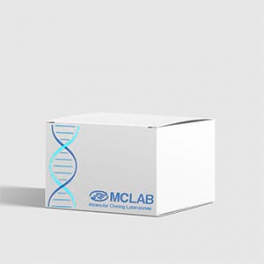 View full size
View full size
- Nucleic Acid Analysis
- Protein Analysis
- Biochemical Reagents
-
Enzymes
- Thermophilic DNA Polymerases
- Mesophilic DNA Polymerases
- Restriction Endonucleases
- Reverse Transcriptase and RNA Polymerases
- DNA/RNA Ligases
- RNases
- Proteases
- Nucleases
- Kinases
- Phosphatases and Sulfurylases
- DNA Repair Proteins
- Single-Stranded DNA Binding Proteins
- Chaperon Proteins and Disulfide Bond Isomerase
- Others
- Gene editing
- Molecular cloning
- Clinical diagnostics
- Human Identification STR kits
- Laboratory instruments
- Software
- A&A Biotechnology
- AdvancedSeq
- BioDynami
- Plant Cell Technology
News
-
RANK 2026
Visit us at the jubilee 20th edition of the RANK 2026 professional conference, which will take place on March 18–19 in Pardubice at the ABC Club. The conference is organized by the Czech Society of Cl...
Read more -
XXXV. Izakovičov memoriál 2025
We are pleased to announce our participation in the prestigious XXXV. Izakovič Memorial 2025, which will take place on October 8–10, 2025 at the Grandhotel Praha, Tatranská Lomnica. The Izakovič Memo...
Read more -
1st Czechoslovak Congress of Medical Genetics 2025
In the spring, we will participate in the 1st Czechoslovak Congress of Medical Genetics, which will take place from April 2–4, 2025, at the Cultural and Congress Center Elektra in the spa town of Luha...
Read more
 View full size
View full size
Description:
Proteinase K (also known as Protease K, Endopeptidase K, Peptidase K, or Tritirachium Alkaline Phosphatase) (EC 3.4.21.64) is a non-specific, broad-spectrum serine protease isolated from the saprophytic fungus Tritirachium album. It is not activated by metal ions, chelating agents (such as EDTA), sulfhydryl reagents, or by trypsin or chymotrypsin inhibitors. The enzyme is stable over a wide pH range (4–12.5), with optimal activity at pH 6.5–9.5. Its activity can be stimulated by adding denaturing agents like SDS and urea. The optimal temperature for Proteinase K activity is 65°C, where it is twelve times more active than at 25°C. Rapid denaturation of the enzyme occurs at temperatures above 65°C.
The dry, lyophilized powder is highly soluble (>50 mg/ml); however, stock solutions are normally 20 mg/ml. The proteinase K is completely RNase and DNase free and has a specific activity of >30 units/mg at 37°C. The recommended storage buffer is 20mM Tris-HCl (pH7.4), 1mM CaCl2, 50% glycerol. Proteinase K is stable for one year in this storage buffer and recommended storage is –20°C.
Applications:
Proteinase K is used to rapidly inactivate endogenous nucleases such as RNases and DNases during RNA or DNA isolation from tissues and cell lines, such as bovine endometrial epithelial cells for herpes viral DNA extraction, and viral RNA extraction from nasal swabs. This enzyme can also be used as a component of phase-lock and direct PCR lysis buffers to remove nucleases in the preparation of tissue sections for in situ hybridization.
Source:
Saprophytic fungus Tritirachium album.
Storage:
-20°C
Avoid repeated freeze-thaw cycles.
Storage at –20°C without glycerol may lead to precipitation of Proteinase K. Bacteria growth may occur in solutions stored at 2°C–8°C for extended periods. Ca2+ can act as a stabilizer to prevent autolysis.
Unit Definition:
One unit liberates 1 µmol of Folin-positive amino acids, measured as tyrosine, at 37°C, pH 7.5, using denatured bovine hemoglobin as the substrate.
Packaging:
100 mg (cat. no. PKP-100)
250 mg (cat. no. PKP-200)
1 000 mg (cat. no. PKP-300)
5 000 mg (cat. no. PKP-400)
Cart
Payment gate



